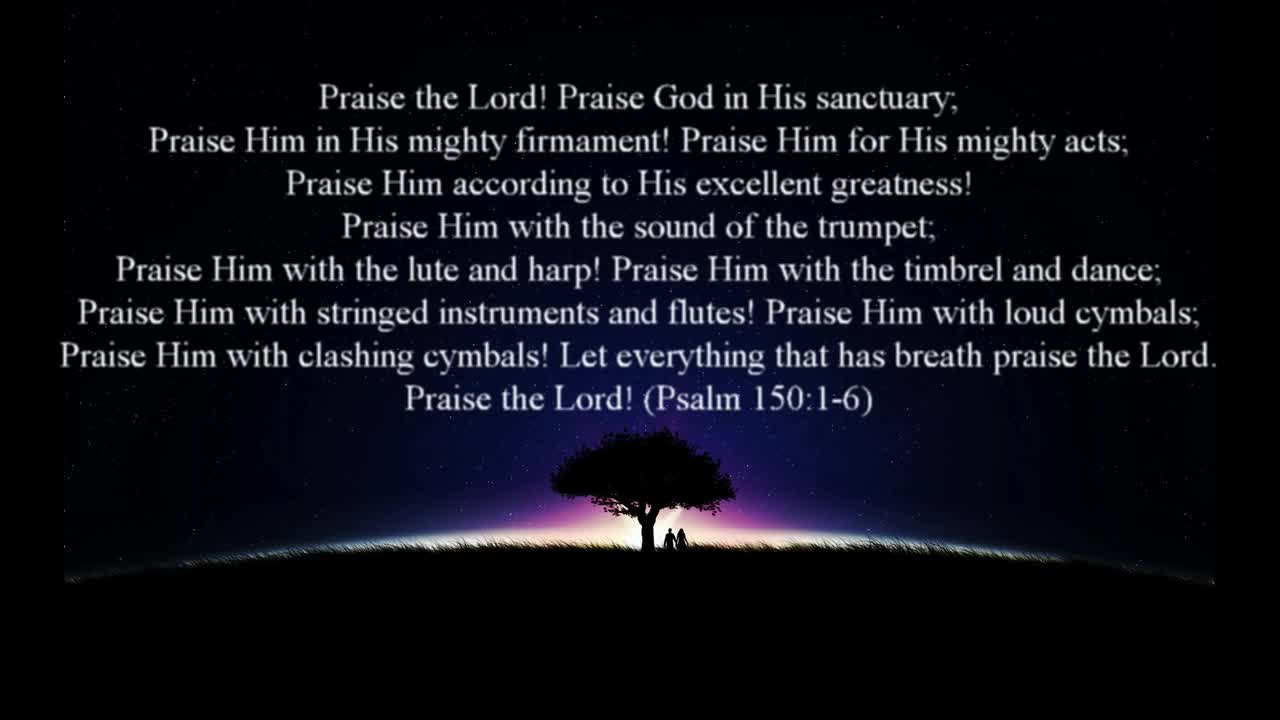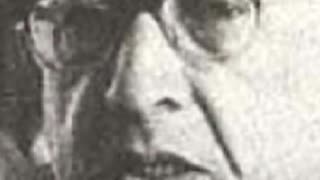Premium Only Content

Jehovah Jesus - Rich Moore Christian Music
I am a singer, guitarist, and songwriter. This is an original contemporary Christian song of mine. May those who listen find it a great blessing, to the glory of the Lord Jesus Christ, in these last days...praise God. (Music and video owned and copyrighted by Rich Moore Christian Music)
All guitars and vocals: Rich Moore
Jehovah Jesus - Contemporary Christian Praise Worship Song Lyrics / Rich Moore Christian Music
The words of this song are from a poem called "Jehovah Jesus," by William Cowper.
Jehovah Jesus
My song shall bless the Lord of all,
My praise shall climb to His abode;
Thee, Saviour, by that name I call,
The great Supreme, the mighty God.
Without beginning or decline,
Object of faith and not of sense;
Eternal ages saw Him shine,
He shines eternal ages hence.
As much when in the manger laid,
Almighty Ruler of the sky,
As when the six days' work He made,
Fill'd all the morning stars with joy.
Of all the crowns Jehovah bears,
Salvation is His dearest claim;
That gracious sound well pleased He hears
And owns Emmanuel for His name.
A cheerful confidence I feel,
My well placed hopes with joy I see;
My bosom glows with heavenly zeal,
To worship Him who died for me.
As man He pities my complaint,
His power and truth are all divine;
He will not fail, He cannot faint;
Salvation's sure, and must be mine.
The first child of Reverend John Cowper and Ann Donne Cowper, Willam Cowper was born on November 15, 1731, in Berkhampstead, Herefordshire, England. The poet's mother died when he was six and Cowper was sent to Dr. Pittman's boarding school, where he was routinely bullied. In 1748, he enrolled in the Middle Temple in order to pursue a law degree.
In 1763, through family connections, he accepted a clerkship of the journals in the House of Lords. A rival faction, however, challenged his appointment and the ordeal caused Cowper to enter Nathaniel Cotton's Collegium Insanorum at St. Albans. While there he converted to Evangelicalism. In 1765, he moved to Huntingdon and took a room with the Rev. Morley Unwin and his wife Mary. Unwin died of a riding accident in 1767 and Cowper and Mary Unwin moved together to the town of Olney in 1768. They were not separated until her death in 1796. While at Olney, Cowper became close friends with the Evangelical clergyman John Newton; together they co-authored the Olney Hymns, which was first published in 1779 and included Newton's famous hymn "Amazing Grace." Of the 68 hymns Cowper wrote, "Oh for a closer walk with God" and "God moves in a mysterious way" are the most well known. In 1773, Cowper became engaged to Mary Unwin, but he suffered another attack of madness. He had terrible nightmares, believing that God had rejected him. When he recovered his health, he kept busy by gardening, carpentry, and keeping animals. In spite of periods of acute depression, Cowper's twenty-six years in Olney and later at Weston Underwood were marked by great achievement as poet, hymn-writer, and letter-writer. His first volume of poetry, Poems by William Cowper, of the Inner Temple was published in 1782 to wide acclaim. His work was compared to late Neo-Classical writers like Samuel Johnson as well as to poets such as Thomas Gray.
William Cowper died of dropsy on April 25, 1800. At the time of his death, his Poems had already reached their tenth printing.
-
 2:49
2:49
Christian Sermons and Audio Books
5 months agoModern Culture in a Conscious Revolt Against Christianity - Dr. C. Gregg Singer / Lecture
4621 -
 3:36
3:36
againstdeception
4 years ago $0.29 earnedElectronic Christian Music
1.94K5 -
 4:27
4:27
againstdeception
4 years ago $0.26 earnedElectronic Christian Music (1)
1.48K1 -
 0:34
0:34
againstdeception
4 years ago $0.09 earnedElectronic Christian Music (2)
835 -
 4:53
4:53
WKBW
5 years agoMUSIC MONDAY - KEEP JESUS FIRST
135 -
 4:52
4:52
againstdeception
4 years ago $0.04 earnedElectronic Christian Music: Against Deception Pernicious Media
8533 -
 1:56:49
1:56:49
cjrusso
4 years ago $4.24 earnedInstrumental Hillsong Worship Music🙏Nonstop Piano Christian Music 2020
5.37K11 -
 3:56
3:56
againstdeception
4 years ago $0.10 earnedElectronic Christian Music Against Deception Monster Takes you
5622 -
 5:40
5:40
againstdeception
4 years ago $0.07 earnedElectronic Christian Music: Against Deception Fly Heights Unknown (2020)
333 -
 2:39
2:39
againstdeception
4 years ago $0.24 earnedElectronic Christian Music: Against Deception Mix Of Songs (2020)
1.57K1